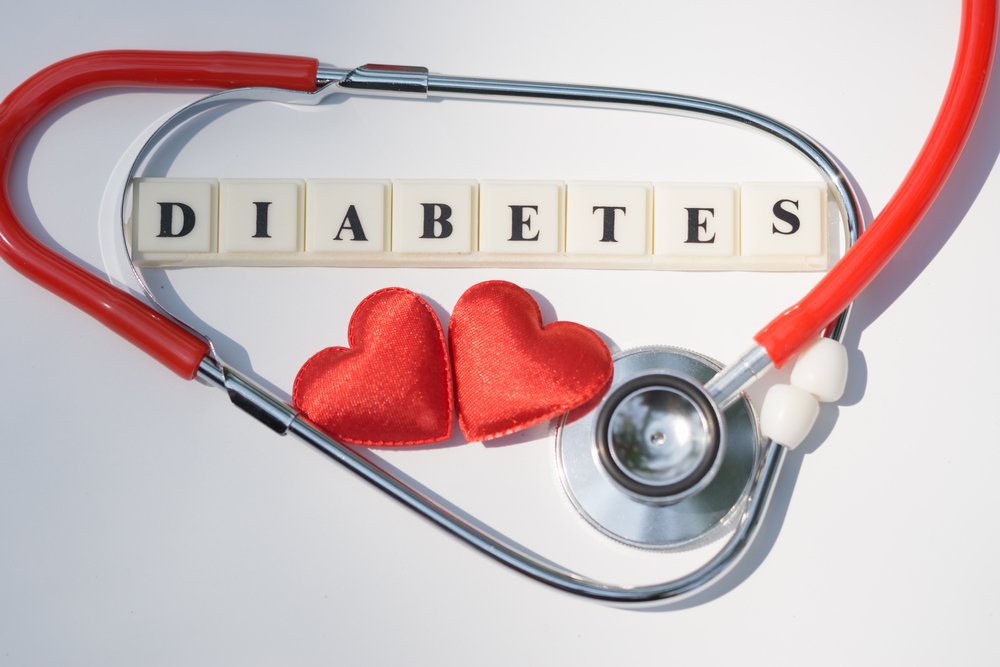A late-August NEJM paper from the ASCEND trial (A Study of Cardiovascular Events iN Diabetes) sparked headlines suggesting fish oil “doesn’t work.” The full story is more nuanced—and more useful.
The study at a glance
-
Who: >15,000 adults in the UK with diabetes (no prior CVD at baseline)
-
Design: Randomized, placebo-controlled, 2×2 factorial (aspirin and/or omega-3)
-
Dose: 1,000 mg/day fish oil delivering ~840 mg EPA+DHA vs 1,000 mg olive oil placebo
-
Follow-up: ~7 years
-
Primary vascular outcomes tracked: MI, stroke, vascular death, and other major vascular events
Top-line result: No statistically significant reduction in all major vascular events with omega-3 vs placebo.
The headline vs the signal
While the composite outcome was neutral, a prespecified component—vascular death—was significantly lower with omega-3:
-
Vascular deaths: 196 (omega-3) vs 240 (placebo)
-
Relative risk reduction: 18% (significant)
There was also a 21% lower risk of coronary death that narrowly missed statistical significance (confidence interval 0.61–1.02), in a trial not powered for that endpoint.
GOED (Global Organization for EPA & DHA) highlighted these points, arguing they’re clinically meaningful—especially as ASCEND is primary prevention in diabetics.
Why a neutral composite makes sense here
1) Participants started with high omega-3 status.
OmegaQuant measured omega-3 profiles in a subset. According to Dr. Bill Harris, participants—particularly in the omega-3 arm—began with an unusually high Omega-3 Index (~7%), and rose to ~9.1% during the trial. For reference, the average adult in the UK is likely <4%. If you start near the 8–12% “optimal” range, adding a modest dose may have limited incremental effect on broad composites.
2) The effective dose was modest.
Only 77% took the assigned capsules regularly. That puts the average intake near ~650 mg/day EPA+DHA (0.77×840 mg)—a level that often doesn’t move hard outcomes unless baseline status is low and/or doses are higher.
3) No baseline screening by Omega-3 Index.
If ASCEND had enrolled only participants with Omega-3 Index <5%, the signal might have been stronger. As Dr. Harris noted, it’s like testing “a bit more statin” in people already on statins—you shouldn’t expect a dramatic separation.
What this means for practice and future trials
-
Measure, don’t guess. Establish a baseline Omega-3 Index before deciding on dose or judging effectiveness. The biomarker confirms whether EPA+DHA is actually getting into tissues.
-
Dose to a target. Aim for an Omega-3 Index of 8–12%. Many people need ~1–2 g/day EPA+DHA (sometimes more) to reach it, depending on diet, body size, and formulation.
-
Design smarter RCTs. Enrich for low baseline omega-3 status, dose high enough to move blood levels, and evaluate outcomes by achieved omega-3 levels (as REDUCE-IT later did for EPA).
Bottom line
ASCEND doesn’t say “fish oil doesn’t work.” It says a modest dose, in people who already had high omega-3 levels, didn’t lower a broad composite—but did lower vascular death by 18%. For individuals (and researchers), the takeaway is clear:
Personalize omega-3 intake by testing your Omega-3 Index and dosing to a protective range—not by guessing or relying on one-size-fits-all capsules.
A late August study published in the New England Journal of Medicine looked at the cardiovascular effects of taking aspirin and the omega-3s EPA and DHA in patients with diabetes. Unfortunately, the results — as portrayed in the headlines — would have many people shelving their fish oil supplements. But don’t abandon ship yet! There were some important findings you need to understand, so you can make an informed decision about your fish/omega-3 consumption and raising your Omega-3 Index.
The Study Details
The ASCEND study — which stands for “A Study of Cardiovascular Events iN Diabetes — recruited more than 15,000 people in the UK between 2007 and 2011. The goal of this randomized placebo-controlled trial was to determine whether 100 mg of aspirin and/or 840 mg of omega-3 fatty acids daily reduces the risk for cardiovascular events and/or cancer in patients with diabetes.
For the omega-3 part of the study, people either took 1 gram daily of a prescription omega-3 product containing 840 mg of EPA+DHA or 1 gram of a placebo, which was olive oil. During seven years of follow up, the subjects were monitored for serious heart and vascular disease events, such as heart attack, stroke and death arising from vascular issues.
A little less than 9% in the fish oil group experienced a serious vascular event compared to a little more than 9% of the placebo group, but the difference in event rates was not statistically significant, leading researchers to conclude: “Our large, long-term randomized trial shows that fish oil supplements do not reduce the risk of cardiovascular events in patients with diabetes.”
They went on to say, “This is a disappointing finding, but it is in line with previous randomized trials in other types of patients at increased risk of cardiovascular events, which also showed no benefit of fish oil supplements.”
And the final blow: “There is no justification for recommending fish oil supplements to protect against cardiovascular events.”
One of the largest omega-3 organizations, the Global Organization for EPA and DHA Omega-3s,otherwise known as GOED, issued a public response to this study paper and then promptly submitted a Letter to the Editor of the New England Journal of Medicine, specifically pointing out the importance of the finding that omega-3s reduced the risk of vascular death by a statistically significant 18%.
The letter asserts that this is a clinically relevant benefit, which is especially important given that these are the first significant results to be reported for primary prevention, and challenges the authors’ conclusion that EPA/DHA-rich products provide no benefit.
Going Behind the Headlines
At OmegaQuant we measured omega-3 fatty acid profiles in 152 subjects at two time points in this study — late 2014 and early 2015. Dr. Bill Harris, who processed this data for the study, said he could confirm the values reported in the paper were generally correct.
“The interesting thing to me is the story they tell,” he said. “For whatever reason, the individuals recruited into this trial already had unusually high Omega-3 Index values. And they were particularly high in the intervention group: 7% at baseline!”
USE OUR OMEGA-3 CALCULATOR TO FIGURE OUT HOW MUCH YOU NEED
These patients are very different from the general adult UK population, for whom the average Omega-3 Index is probably less than 4%. “While omega-3 treatment increased the Omega-3 Index to 9.1%, the high baseline Omega-3 Index suggests that the study participants were already close to the range of an Omega-3 Index (8-12%) that is optimal for cardiovascular disease prevention,” Dr. Harris explained. “So it is no surprise that an additional dose of omega-3 would only have a modest effect.”
PERSONALIZE YOUR OMEGA-3 CONSUMPTION USING THE OMEGA-3 INDEX
Dr. Harris went on to say that this is precisely the kind of cohort that you would NOT enter into a low-dose omega-3 randomized controlled trial if you screened for a low Omega-3 Index at study entry. “It’s like doing a statin trial in a population where everyone was already taking 10 mg of statin, and then half got randomized to 5 mg more,” he commented. “Why would you expect to see a difference?”
Furthermore, he pointed out that if the investigators used the Omega-3 Index for screening and only accepted people with an Index <5%, for example, the results might have come out more favorably.
We’ve talked about chronic low dosing in these types of studies before, which, not surprisingly, is also a major flaw of the ASCEND study. To that point, Dr. Harris points out, “Considering that you have 840 mg of EPA+DHA in 1 capsule and only 77% took that dose, the actual intake might have been something like 0.77 x 840 or 647 mg on average in the ‘intention to treat’ analysis. This level is way too low to expect an effect on the cardiovascular endpoints they were investigating in this study.”
READ OUR BLOG ON THE ISSUE OF CHRONIC LOW DOSING IN OMEGA-3 STUDIES
Despite all of this, Dr. Harris finds it remarkable that for one major outcome — vascular death — there actually was a significant effect of treatment, even in this challenging setting.
Vascular Death is the sum of coronary death, stroke death and “other” vascular causes of death. There were 196 vascular deaths in the omega-3 group and 240 in the placebo group. “This was a statistically significant 18% reduction in risk. This was also one of the 3 components of the pre-defined primary endpoint, so it is not an ‘exploratory’ or ‘fishing for positive p-values’ type finding,” Dr. Harris commented.
GOED also chimed in on this finding, saying the most consistently demonstrated and reported benefit associated with omega-3s is the reduction in risk of cardiac death, which includes death from coronary heart disease (CHD), and in the ASCEND study there were fewer vascular deaths in the EPA/DHA group than in the placebo group.
Additionally, GOED explained, the authors report a 21% risk reduction for coronary death that just barely missed being statistically significant (95% Confidence Interval = 0.61-1.02; to be significant, the interval cannot contain 1.0). Given that the study was not powered to detect such a difference, GOED feels strongly that this finding should not be overlooked.
“It’s important to point out that this is the first time that results from any significant primary prevention research on omega-3s have been published,” GOED explained. “While more research is needed, this could indicate that the mechanisms that underlie cardiovascular prevention as measured in secondary prevention may also be present in primary prevention, and help protect diabetics.”
In the end, it comes down establishing a baseline blood level of omega-3s (i.e. Omega-3 Index) before a study even starts. Only then will researchers be able to determine whether the omega-3s people are taking are actually getting into the body and raising their Omega-3 Index.





